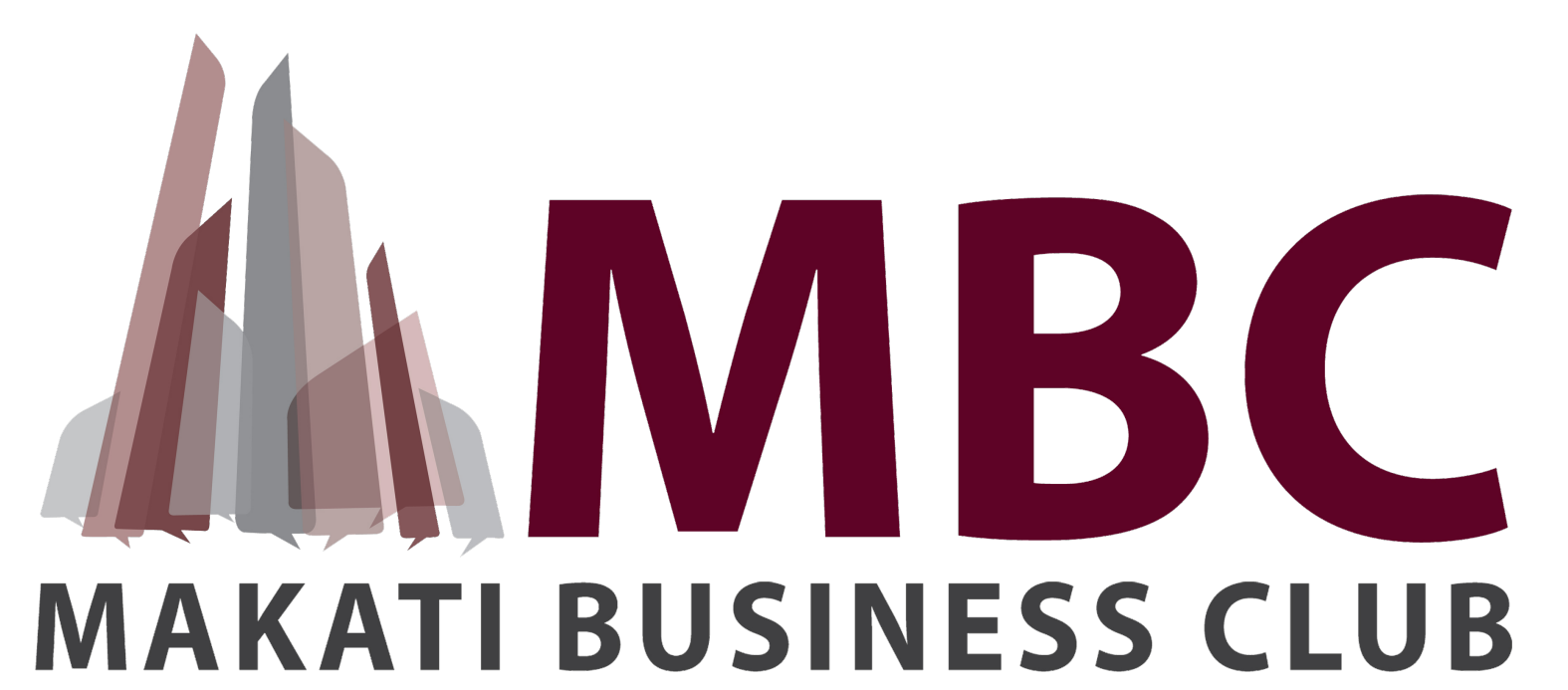MBC Members and Industry Stakeholders tackle
Single-Use Plastics and Plastic Alternatives
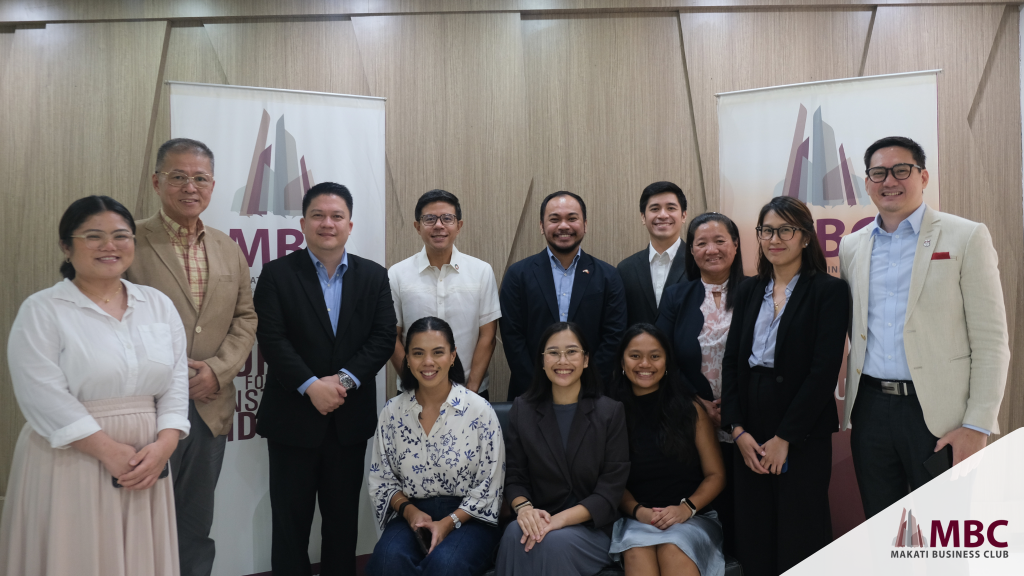
02 August 2024 – The Makati Business Club (MBC) held a roundtable discussion on Single-Use Plastics (SUP) and Plastic Alternatives. MBC members from Alaska Milk (Sonny Fernandez), Coca-Cola (Joey Perfecto), Dow Chemical (Errol Ignacio), Jollibee Foods Corporation (Steve Piczon), Mondelez (Caitlin Punzalan), Nestlé (Atty. Kim Rances), and Unilever (Atty. Joseph Fabul) were present. Plastic industry stakeholders from Glades International (Roselyn Binuya) and the Philippine Plastics Industry Association (PPIA) (Danny Ngo) also participated in the session.
The meeting drew insights and recommendations from participants regarding the regulation of single-use plastics, particularly on the Single-Use Plastic Bag Excise Tax Bill which has been identified as a top priority bill for passage by the Legislative Executive Development Advisory Council. One notable point raised was the need to further clarify if the measure will only apply at a retail level as the definition of an SUP bag in the proposed bill remains unclear.
One participant highlighted the importance of aligning plastic regulations between national and local levels. They stated, “Passing a law should be an opportunity to harmonize and streamline plastic policies across both national and local governments.” Another representative from a leading consumer goods company emphasized a key issue: “If a national law regulates and taxes plastic bags, it could impact local governments’ ability to enforce bans. It’s essential to ensure that local policies can effectively complement national regulations.”
The session also explored the feasibility of using SUP alternatives and recycled materials in dealing with the plastics problem. One participant shared that her company’s roadmap for next year has reflected the demand for more sustainable alternatives to plastic products.
The discussion also emphasized the challenges posed by the lack of supply and infrastructure for recycling. Industry representatives highlighted that, despite using recyclable materials, the absence of adequate recycling facilities hinders effective recycling efforts. They pointed out the significant economic potential of improving plastics recycling, estimating an additional USD 900 million could be added to the Philippine economy. They underscored the need for government support to enhance recycling infrastructure and increase the availability of recyclables, unlocking the potential of this emerging industry.
Industry leaders believe in giving the Extended Producer Responsibility (EPR) Law a chance to prove its effectiveness. They suggested that reviewing the results of the law’s first year of implementation could provide valuable insights for future legislation, advocating for a data-driven approach. Additionally, they highlighted the necessity of strengthening EPR incentives to encourage greater participation from industries and recyclers, thereby supporting these crucial initiatives.
MBC aims to facilitate the compliance of businesses with the EPR Law and other sustainability policies.
This activity is a part of MBC’s Circular Economy Program which is in partnership with the Embassy of the Netherlands in Manila.
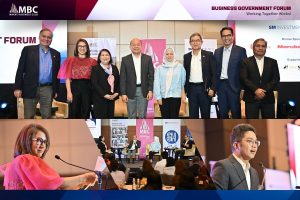
Transparency and Accountability keys to competitiveness
Transparency and Accountability Keys to Competitiveness MORE PHOTOS WILL BE RELEASED 27 February 2025 – “Legislative and public support are crucial for us to achieve
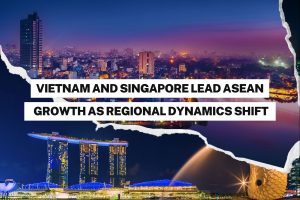
ASEAN 6 GDP: Vietnam And Singapore Lead ASEAN Growth As Regional Dynamics Shift
ASEAN 6 GDP: Vietnam And Singapore Lead ASEAN Growth As Regional Dynamics Shift Country Q1 Q2 Q3 Q4 2025 Indonesia 4.87 5.12 5.04 5.39 5.11
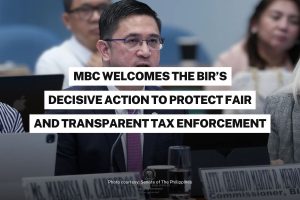
MBC Welcomes the BIR’s Decisive Action to Protect Fair and Transparent Tax Enforcement
MBC Welcomes the BIR’s Decisive Action to Protect Fair and Transparent Tax Enforcement 24 February 2026 – The Makati Business Club commends Bureau of Internal
